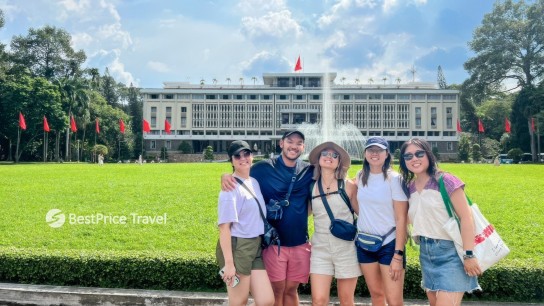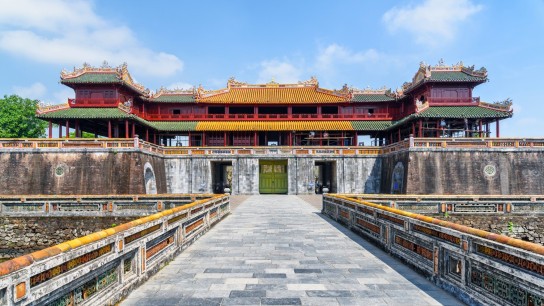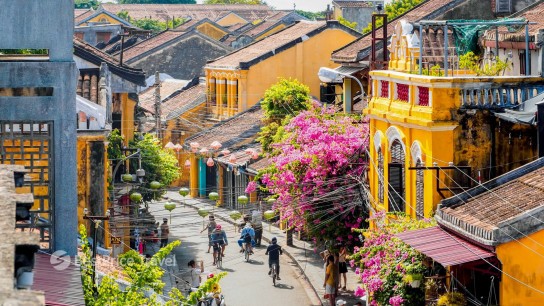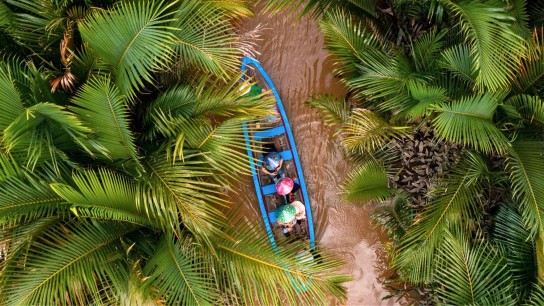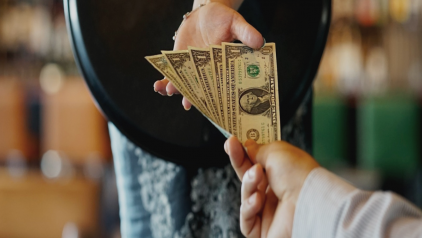Most Common Travel Scams to Avoid in Vietnam
Vietnam is an attractive destination to discover, but there is still a multitude of travel scams annoying your trip. Don’t let yourself be a victim of these common scams in Vietnam on your upcoming trip.
Vietnam is known for its timeless charm and the residents’ hospitality. However, like any other touristy destination, Vietnam still has a range of unscrupulous individuals who want to take advantage of newcomers to the country. Sometimes it’s inevitable to avoid the tricky Vietnam scams; then educate yourself to enjoy your stay in this amazing country.
1. Accommodation scams
- When booking online
Some hotels that you’ve booked online via Agoda or Booking will ask you to make a payment in advance. However, you still have to pay an extra invoice for one night’s stay or something like that. If you want to check the bookings on a computer, they might excuse of error system or taking too long then ask you to show the receipts.
How to avoid: This trick usually comes up with cash payment. Make sure you have receipts or confirmation in the hotel’s receipt book after paying the bill.
Some Vietnam hotels charge double rates upon checkout by claiming that the price quoted was per person rather than per night. Additionally, plenty of hotels provide exaggerated information and images, even the same name with a major brand in hopes of faking business.
How to avoid: Check carefully and confirm the address of your hotel before booking.
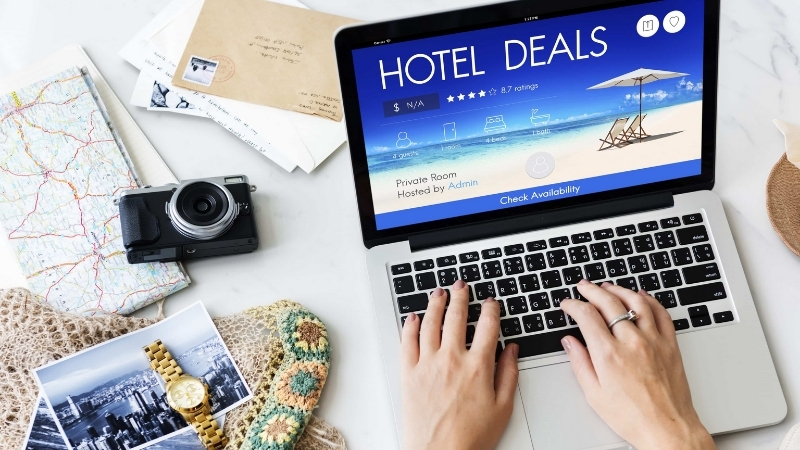
Be watchful with hot hotel deals while booking online
- By hotel staff
Cleaning staffs really annoy in case they deliberately clean your room at the time you return or even when you put the sign “Please do not disturb” because they’re eager for a tip. Sometimes you must be watchful of the possibility that they stole some precious items from your room.
How to avoid: If you feel unpleasant about the room cleaners, just call the receptionist to complain and solve the problems. Bring along your precious properties or lock them in the safe.
2. Transportation scams
- Dodgy taxi in Vietnam
In Southeast Asia, dodgy taxis are commonly unscrupulous to travelers with unlicensed cab drivers, taking longer routes to maximize the fare or driving without the meter. You might catch a car painted like a licensed taxi, but your taxi driver doesn’t wear a shirt and a tie. Or they’ll advertise ‘they are metered’ in a banner on their doors. Once you get into the car, you’ll realize the cheating.
How to avoid: Before climbing into a taxi, check for some reputable brands such as Vinasun, Mai Linh, and G7 Taxi. These operators offer professional services and drivers’ uniforms.
Alternatively, there are several transport companies that give you more convenient and faster ways to book a taxi or a motorbike ride in few minutes. You can download the apps of Grab, GoViet, or Bee in Vietnam to experience reliable services like Uber.
To avoid Vietnam taxi scams, you can refer to Vietnam Taxi: Best Brands & Prices [Updated]
- Train ticket
Traveling by overnight train across Vietnam is an affordable and experienced way for backpackers and long-termed travelers. However, you can see a lot of scams about fake booking websites and an offered attractive price at the entrance of train stations. Especially, you’ll meet many dealers who tell you the train is delayed and offer to book another ticket for you.
How to avoid: Buy train tickets via your hotel, a trusted travel agent, or an official website. In case you head to the train station, buy your ticket directly at the box office. Be careful when you check the details because train tickets in Vietnam don’t show the class printed on them.
- Cyclo/ City tour
Wandering around the street especially in Hanoi and Hoi An, you’ll see a symbolic Vietnamese image of a cyclo, a bicycle taxis. It’s exciting to get a ride for sightseeing, but the cyclist may offer a ‘small’ fee then charge you an inflated price once you arrive at your destination. Similarly, be aware of a guided city tour by motorbike.
How to avoid: You’d better negotiate a clear price before climbing on the cyclo and make sure the price is total or per person, in return or one-way journey. In terms of a city tour, go asking for help from your tour guide and hotel reception about booking a tour with a reliable operator.
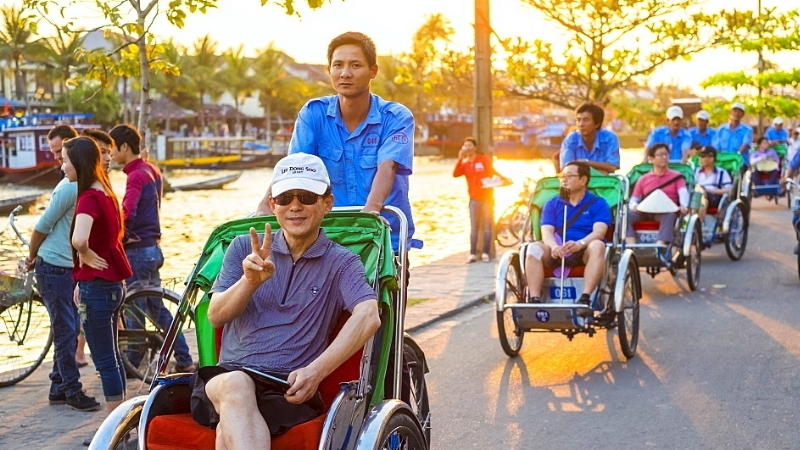
Cyclo tour around the old quarter of Hanoi, Vietnam
- Motorbike rental
In some regions, getting around by motorbike is a must, so pack yourself with some common scams before hiring a bike in Vietnam. Some tourists have to tackle with existing mechanical problems of motorbikes, defective parts, or even owners’ stealing rented bikes to demand compensation.
Besides, driving in Vietnam requires a driving permit but many rental shops claim that you don’t need one to rent their motorcycles. Once you’re stopped by the police without a permit, you’ll be impounded for up to a month and charged a steep fine.
How to avoid: Rent your bike from a reputable supplier and choose one of the popular brands in Vietnam like Honda, Yamaha to get away from fake motorbikes. Ask the owner for a valid driving permit then test out the bike upon rental to solve the problems. You can take photos of existing scratches or defects to verify with the owner.
3. Street vendor scams
Wandering around Hanoi streets, you’ll see a bunch of fruit sellers with long bamboo poles on their shoulders. They may offer you to buy local fruits like apples, mangos, pineapples, peaches. If you refuse to purchase, they’ll try to invite you to take photographs with them or one of you carrying their bamboo pole. Be aware of it, because they’ll charge you once you’ve taken the photos.
How to avoid: Politely but firmly say NO to their offer. If the street vendors are persistent, simply stay away from them because these people usually work in groups.
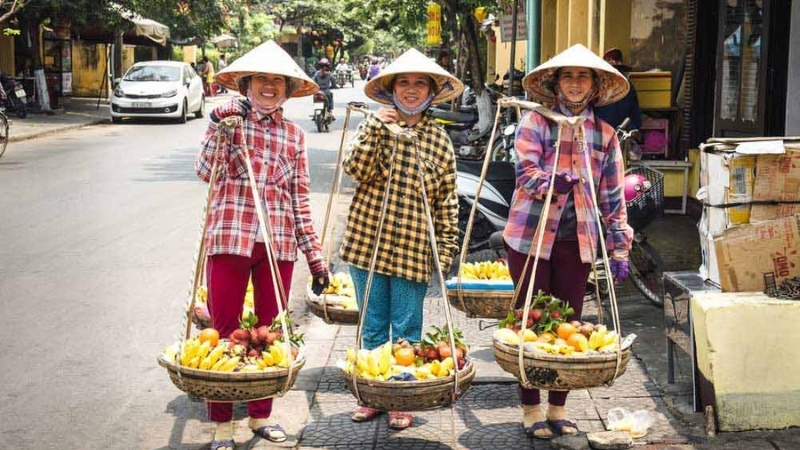
The iconic street vendors in Vietnam
4. Restaurant scams
Vietnamese dishes are flavorsome but affordable. However, some restaurants overcharge tourists with exorbitant prices. The staff will show you the menu without specific prices and assure you their meal is cheap. Unfortunately, you’ll receive a bill which is much more expensive than the regular price.
Another trick is the restaurants show listed prices in USD but demand payment in Vietnamese Dong. They’ll benefit from an unreasonably expensive exchange rate.
How to avoid: Before ordering, always ask for a detailed menu with prices per item and confirm the currency of payment. To avoid some unscrupulous restaurants, do research and only visit those with positive feedbacks.
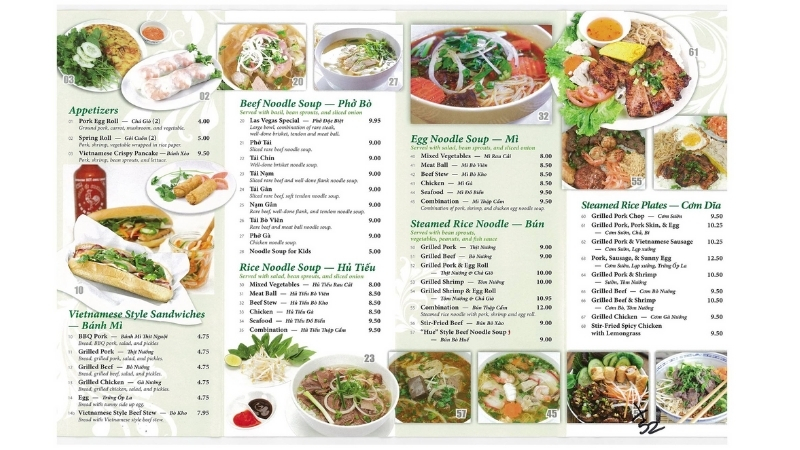
A menu should include descriptions, images, and the unit of currency
5. Entertaining scams
For male tourists, there is a range of amusing activities like karaoke, prostitution, and massage to relax. You might be approached by a hooker who has received your money but disappears when you ask for a booked room at the karaoke. Even if you enter the room, there is no pretty girl like the advertisement on flyers. Sometimes, you’ll be convinced by beautiful girls on the street but when you come for a massage, the beauty is replaced by another woman.
Other scams are overcharged unreasonable fees for foods, drinks, towels, and music. You’ll be forced to pay the bill by the gangsters in those places. Notably, these scams might come up with attractive girls on dating apps.
How to avoid: Research online for reliable institutions or ask your hotel for a recommendation. Be careful of pretty girls online as well as in dark alleys.
6. Other scams
At some free-entry attractions, you’ll meet strangers telling you to pay an entrance fee to enter the site. Just learn about the attraction while planning your trip to Vietnam. You should list which places will charge an entrance fee or not. Most Buddhist temples in Vietnam are openly free for tourists, though donations are welcomed.
Money exchange is always a confusing problem while traveling abroad. Despite the official currency of Vietnam, many shops, restaurants, hotels, and transportation are quoted in US dollars. Remember to confirm which currency to pay and check the exchange rate twice when you want to make the conversion.
Don’t take these scams as an obstacle to your dreamy trip to Vietnam. Let’s be in full possession of your senses to enjoy your Vietnam tour vacation.
You may also like: Avoiding Scams for Halong Bay Cruises
Hong Nhung
(Image sources: Internet)
